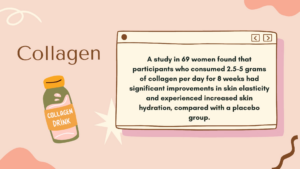The pursuit of youthful and radiant skin is a universal desire. While countless skincare products claim to deliver anti-aging benefits, two ingredients stand out as true powerhouses: retinol and vitamin C. These potent compounds work synergistically to combat the visible signs of aging, from fine lines and wrinkles to uneven skin tone. By understanding their individual properties and how they complement each other, you can unlock the full potential of your skincare routine.
Retinol, a derivative of vitamin A, has been a skincare staple for decades. It excels at stimulating cell turnover, which helps to shed dead skin cells and reveal a fresher complexion. Additionally, retinol boosts collagen production, the protein responsible for skin’s elasticity and firmness. This collagen-boosting effect helps to diminish the appearance of fine lines and wrinkles, improving overall skin texture. On the other hand, vitamin C is a potent antioxidant that shields the skin from environmental stressors like pollution and UV radiation. It also plays a crucial role in collagen synthesis, working in harmony with retinol to enhance skin’s structural support. Furthermore, vitamin C brightens the complexion and helps to fade dark spots, promoting a more even skin tone.
Combining Retinol and Vitamin C
To maximize the benefits of both retinol and vitamin C, it’s essential to understand how to incorporate them into your skincare routine.
- Timing is Key: Retinol is often more effective when applied at night as it can increase skin sensitivity to sunlight. Vitamin C, on the other hand, acts as a potent antioxidant, making it ideal for daytime use to protect the skin from environmental aggressors.
- Gradual Introduction: If you’re new to retinol, start by using it every other night to allow your skin to adjust. Gradually increase the frequency as your skin tolerates it. For vitamin C, you can typically incorporate it into your morning routine without concerns.
Enhanced Collagen Production
- Retinol’s Role: Retinol stimulates collagen production, the building block of youthful skin. By increasing collagen synthesis, it helps to plump the skin and reduce the appearance of fine lines and wrinkles.
- Vitamin C’s Contribution: Vitamin C acts as a co-factor in collagen production, meaning it works synergistically with retinol to enhance this process. Together, they create a more robust collagen structure, leading to improved skin firmness and elasticity.
Brightening and Even Skin Tone
- Vitamin C’s Impact: Vitamin C is renowned for its brightening properties. It inhibits the production of melanin, the pigment responsible for dark spots, resulting in a more even skin tone.
- Retinol’s Exfoliating Benefits: Retinol gently exfoliates the skin, removing dead skin cells and revealing a brighter complexion. When combined with vitamin C’s brightening effects, the results are even more dramatic, promoting a radiant and luminous glow.
Conclusion
The combination of retinol and vitamin C offers a powerful and effective approach to combatting the signs of aging. By addressing multiple skin concerns simultaneously, these ingredients help to restore a youthful and vibrant complexion. It’s important to note that consistency is key when using these products. While results may take time, with regular use and proper skincare practices, you can achieve a noticeable improvement in your skin’s appearance.
Remember to consult with a dermatologist if you have any concerns or questions about incorporating retinol and vitamin C into your skincare routine. Additionally, always apply sunscreen during the day to protect your skin from harmful UV rays, especially when using retinol.








